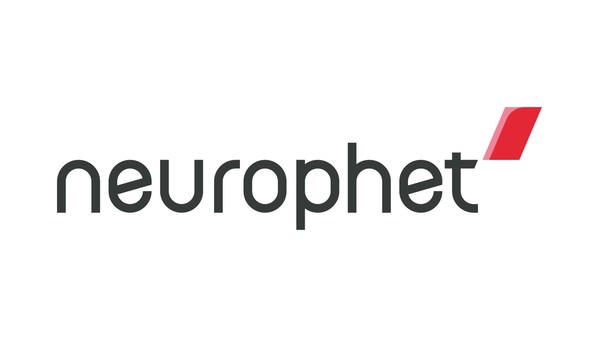 |
SEOUL, South Korea, Nov. 25, 2024 /PRNewswire/ -- Neurophet, an artificial intelligence (AI) solution company for brain disease, announced on the 25th that its brain MRI analysis software "Neurophet AQUA", has obtained 510(k) clearance from U.S. Food and Drug Administration (FDA) for its newly integrated multiple sclerosis (MS) analysis functionality.
The initial clearance, secured in May last year, authorized brain atrophy analysis using T1-weighted images derived from MRI scans, specifically targeting neurodegeneration conditions. The latest clearance extends the software's capabilities, incorporating advanced analysis of MS and white matter hyperintensities (WMH) using T2-FLAIR images.
Neurophet AQUA analyzes MRI (magnetic resonance images) with AI technology to analyze brain atrophy and WMH observed in neurodegenerative diseases such as Alzheimer's disease. It provides rapid segmentation and analysis of brain images across all demographics, delivering results within just five minutes.
The software's MS analysis technology quantifies lesions and structural changes, enabling precise measurement of lesion count, volume, and progression. Notably, it delivers robust segmentation across both 2D and 3D imaging methods of T2-FLAIR MRI at 1.5T and 3.0T, while also enabling volumetric analysis of brain regions without requiring 3D T1 imaging.
MS is a demyelinating autoimmune disease of the central nervous system, affecting the brain, spinal cord, and optic nerves. Characterized by inflammatory and neurodegenerative damage, the condition predominantly impacts individuals aged 20 to 40, with a higher prevalence among women. MS is most common among Caucasians in North America and Europe, while its occurrence is relatively lower among Asian and African Americans.
MRI is the gold standard for diagnosing MS, often supplemented with blood tests and cerebrospinal fluid analysis. MS has a high likelihood of recurrence, requiring continuous monitoring of prognosis through regular MRI scans.
"MS is a neurological disorder that heavily relies on MRI for both diagnosis and disease monitoring, and the McDonald criteria, the diagnostic criteria for MS, specifically includes MRI confirmation of lesions disseminated in space and time," said Jake Junkil Been, Co-CEO of Neurophet. "Neurophet AQUA's advanced MS analysis technology significantly enhances efficiency and convenience for healthcare professionals, making it an indispensable tool in both diagnostic and prognostic stages."
He added, "With MS being highly prevalent among Caucasians in North America and Europe, this FDA clearance marks a pivotal step in strengthening our foothold in the global market. We aim to leverage this milestone to expand our presence across the U.S., Europe, and beyond."
About Neurophet
Neurophet has specialized in developing solutions for diagnosis support, treatment guides, and treatment devices targeting brain diseases based on cutting-edge artificial intelligence (AI) technology. The company was founded in 2016 by Co-CEOs Jake Junkil Been and Donghyeon Kim, who developed the next-generation neuro-navigation system.
Major products include brain MRI analysis software "Neurophet AQUA", brain PET image analysis (PET tracer deposition) software "Neurophet SCALE PET", brain imaging treatment planning software for electric and magnetic brain stimulation "Neurophet tES/TMS LAB".
Neurophet has set its top priority to helping patients suffering from brain diseases. Based on expertise in neuroscience, Neurophet will continue to challenge and grow to explore the human brain's health and pioneer solutions for brain diseases with AI technology.